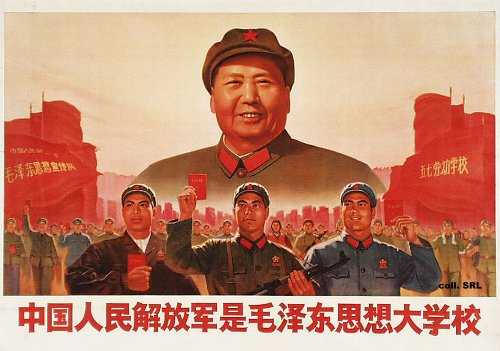An ongoing crackdown on speech and dissent in China since Xi Jinping came to power has empowered leftists in the country, according to a report by Chris Buckley and Andrew Jacobs in the New York Times:
China’s Maoist ideologues are resurgent after languishing in the political desert, buoyed by President Xi Jinping’s traditionalist tilt and emboldened by internal party decrees that have declared open season on Chinese academics, artists and party cadres seen as insufficiently red.
[…] The latter-day Maoists, whose influence had faltered before Mr. Xi came to power, have also been encouraged by another internal document, Document No. 30, which reinforces warnings that Western-inspired notions of media independence, “universal values” and criticism of Mao threaten the party’s survival.
[…] China’s old guard leftists are a loose network of officials and former officials, sons and daughters of party veterans, and ardently anti-Western academics and journalists. They look back to the precepts of Marx, Lenin and especially Mao to try to reverse the effects of China’s free-market policies and the spread of values anathema to party tradition. And while their direct influence on the party leadership has been circumscribed, they have served as the party’s eager ideological inquisitors.
Their favorite enemies are almost always members of China’s beleaguered liberal circles: academics, journalists and rights activists who believe that liberal democracy, with its accompanying ideas of civil society and rule of law, offers the country the best way forward. [Source]
Xi Jinping recently called for greater “ideological guidance” in the nation’s universities, and has also called on artists to serve the Party and Socialism.








